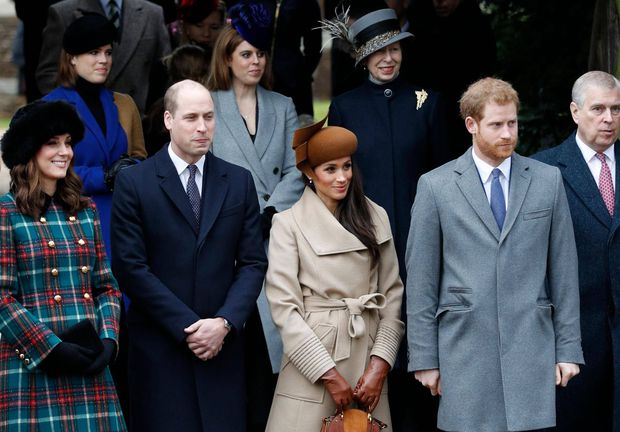Bruce Mabley has argued recently in these pages that it is “Time to End the British Monarchy in Canada.” The current royal wedding indeed makes this a timely topic. I respectfully disagree. I think the monarchy is a good idea and is certainly not going to be ended in Canada any time soon.
Mabley concentrates on the issue of national sovereignty: his argument is that sharing the British queen implies we are not yet fully independent of our British former colonial masters. That may be so in a purely symbolic sense, but as a practical matter, Britain has no influence on Canadian affairs. Sharing a queen does not change that. The greater issue for Canadian independence is, and long has been, the matter of living next door to the world’s largest superpower, and speaking, most of us, the same language.
The U.S. is a good neighbour; but Canada’s situation is, as former prime minister Pierre Trudeau once said, like being a mouse sleeping next to an elephant. Given this, preserving the British monarchy is for most Canadians an assertion of our distinctness and our independence: it makes us fundamentally, constitutionally different from the U.S. and its assertive republicanism. For this reason alone, most Canadians cherish the monarchy.
Mabley’s next objection is that the monarchy is “Anglo,” and so unfair to all the other ethnicities that make up Canada. I ought, in theory, to agree with him, and object on these grounds: my own ancestry is mostly Irish Catholic. I have no reason to love an English queen who must, by law, be Protestant. Nevertheless, it is worth noting that the English themselves can, and often do, make the very same objection: what, after all, is England doing with a German royal family? Except, of course, for the Duke of Edinburgh, who is Greek. And Meghan Markle, who is American, and mixed race…
The truth is, European royalty are not now and have never been of any one ethnicity. They have traditionally intermarried across national boundaries as a matter of duty. At one time, early in the 20th century, the kings of Britain, Germany, and Russia were all first cousins.
This is tremendously useful for uniting any country of mixed ethnicity – just like Canada. And, if we have borrowed our monarch from some other country, this too is standard practice: when Bulgaria, for example, decided they needed a king, they chose a cadet branch of the German royal family. Jordan, needing a king, chose an established family from Mecca. Spain and Austria were for one long period both ruled by the Bourbon family. Monarchs are in principle non-ethnic. Coming from abroad can enhance this. As a result, they cannot be suspected of favoring this local group over that.
This aspect of the British monarchy has in fact been held to be of special value to Canada’s indigenous people.
For a nation to unite and work together as a nation, it must have some unifying principle or symbol. Cooperation with strangers is otherwise not natural. There is no better such symbol than a human face. Without allegiance to a monarch and a royal family, the obvious alternative is an appeal to ties of ethnicity, to others like yourself, as if in some distant family relation. This is the nation-state. Nation states have gone bad places over the last few centuries, and Canada is not in principle a nation-state. In a nation-state, ethnic minorities are almost by definition given inferior status.
In a monarchy, by contrast, diverse ethnicities are equal.
Historically, monarchies seem to be better than nationality at unifying people under one government. This stands to reason: it is easier to identify with another human being than with a theoretical shared culture and history. Britain, Canada, Australia, New Zealand, Denmark, Japan, the Netherlands, Sweden, Norway, are monarchies. These are all countries commonly pointed out as having unusually high levels of social consensus, egalitarianism, and civil peace. Perhaps there is a reason.
Granted, these are all developed countries. What about those less developed?
Consider the Middle East. Which countries have been more peaceful and orderly, on the whole? The monarchies: Saudi Arabia, Oman, Qatar, Kuwait, the United Arab Emirates, Jordan? Or the republics: Egypt, Iraq, Iran, Syria, Libya, Yemen?
Consider Southeast Asia. Which countries have done better, on the whole, at this business of peace and prosperity, Thailand and Malaysia, monarchies, or Burma, Indonesia, and Vietnam, culturally similar and similar in population, but republics?
And in Europe, which nation has been more tranquil over the last two hundred years: Britain, with its kings and queens, or France, with its republics?
Now compare Canada’s history to America’s over these same two hundred years. Both ethnically and geographically, Canada has far deeper natural divisions. Regarding the independence referendums in Quebec, Mr. Mabley quotes an American diplomat saying, “such a state of affairs led to a bloody civil war between the North and South in his country.”
Exactly. It is the U.S., not Canada, despite more obvious divisions in the latter case, that suffered a devastating civil war.
Shared allegiance to a monarch who is seen as above politics preserves a sense that everyone is in the end on the same side; and the monarch, if he or she has kept themselves out of controversies, can serve as an honest broker in any real extremity.
Granted, a republic looks good in theory. The people are sovereign, everyone is equal and so forth. But perhaps, in theory, is where it best belongs.


